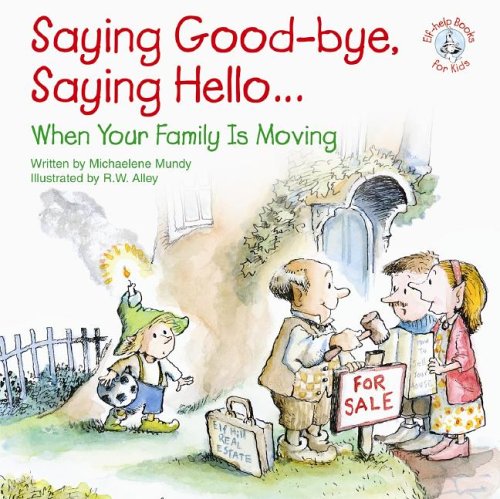
Saying Good-Bye, Saying Hello
0

Saying Good-Bye, Saying Hello
0
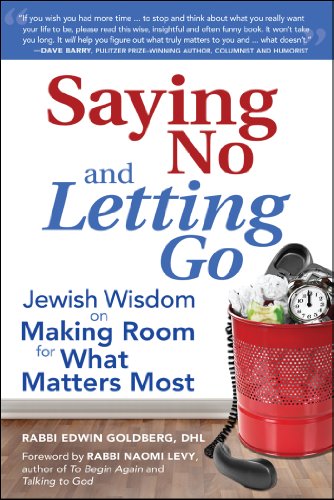
An inspiring introduction to the most important lesson for today s busy world:
the take-away is to take away.
All we can hope to accomplish by paying attention is to learn to live with the mystery, become more comfortable with not knowing and try to enjoy life s uncertainty. Every day is a gift, but we often squander it by missing what matters most.
from the Introduction
Every day we are faced with choices that entail saying no and frankly we re not very good at it. Whether it s the desire to please, get ahead, accumulate or impress, our lives have become so full and so busy that it is hard to determine what we really need and what s really important to us.
The purpose of this book is to help you regain control of the things that matter most in your life. It taps timeless Jewish wisdom that teaches how to hold on tightly to the things that matter most while learning to let go lightly of the demands, worries, activities and conflicts that do not ultimately matter. Drawing insights from ancient and modern sources, it helps you identify your core values as well as the opportunities that do not reflect those values, and that you can learn to pass up. It also shows you how to establish a disciplined practice to help you adhere to your choices.
Whether it s letting go of resentment, learning to say no at work or to your loved ones, downsizing your diet or asking less of the earth, this book will help you distinguish between the trivial and the profound.
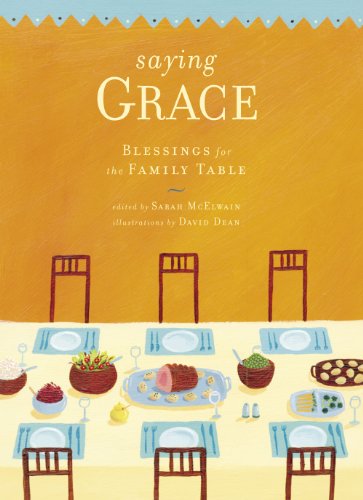
Offering thanks for our daily bread is just about universal. This collection of 120 mealtime blessings spans the globe and reaches back hundreds of years to include a wide range of sentiments, from the amusing to the heartfelt to the sacred. A Chinese proverb gives us this reminder, “When eating bamboo shoots, remember the man who planted them.” The Irish lyrically ask that “the sweet light within you guide you on your way.” And for those who like to cut to the chase, there’s “Good bread, good meat, good God, let’s eat.” What they have in common is a joyous and heartwarming appreciation for life’s bounty. Beautifully illustrated, these pages offer those gathered around the table time-honored words of gratitude. In the words of a 19th century blessing, “May others all these blessings share, and hearts be grateful everywhere.”
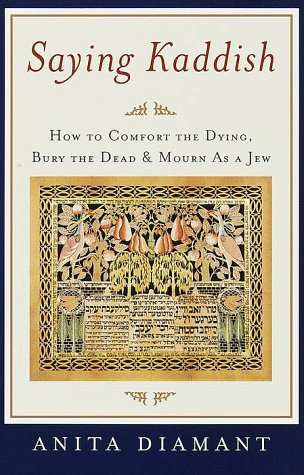
Anita Diamant’s knowledge, sensitivity, and clarity have made her one of the most respected writers of guides to Jewish life. In Saying Kaddish, she shows how to make Judaism’s time-honored rituals into personal, meaningful sources of comfort. Diamant guides the reader through Jewish practices that attend the end of life, from the sickroom to the funeral to the week, month, and year that follow. There are chapters describing the traditional Jewish funeral and the customs of Shiva, the first week after death when mourners are comforted and cared for by community, friends, and family. She also explains the protected status of Jewish mourners, who are exempt from responsibilities of social, business, and religious life during Shloshim, the first thirty days. And she provides detailed instructions for the rituals of Yizkor and Yahrzeit, as well as chapters about caring for grieving children, mourning the death of a child, neonatal loss, suicide, and the death of non-Jewish loved ones.”In the past, when a Jew died, no one asked, ‘When should we schedule the funeral?’ or ‘How much would you like to spend on the casket?’ or ‘Where will she be buried?'”
The law and the synagogue had ready answers to all of these questions, as Anita Diamant notes in Saying Kaddish. Yet today, Jews must grapple with dozens of questions that make the process of grief difficult to understand in religious terms–questions such as, “How can I, as a Jew-by-choice, mourn for my Catholic father or my Baptist sister?” Diamant’s book guides readers to make responsible decisions about how to honor the dead with integrity. Her practical advice is complemented by personal reflections and historical explanations, in a book that will help readers find their way, and make them feel less alone, in the excruciatingly lonely process of grief. –Michael Joseph Gross
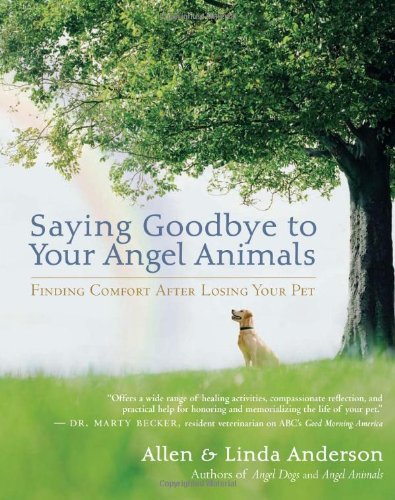
In this thoughtful book, Allen and Linda Anderson walk you through the numbing pain and dreadful sense of loss that arise when a beloved animal dies. They offer solace to help you deal with grief, remember and honor key moments in the animal’s life, find comfort through groups and with professionals, and get past the depression. They also include exercises, affirmations, and meditations to use through the various stages of grief. The Andersons’ caring, practical advice covers all aspects of pet loss, offering guidance on:
helping children grieve :: honoring your religious beliefs :: grieving for runaway pets :: helping others know what to say or do to console you :: planning an appropriate memorial ceremony or tribute
The book also explores the concept of after-death experiences of departed companion animals and relates many beautiful stories, including the Rainbow Bridge story, that reinforce the love and sense of peace that come from honoring the place animals hold in our lives.
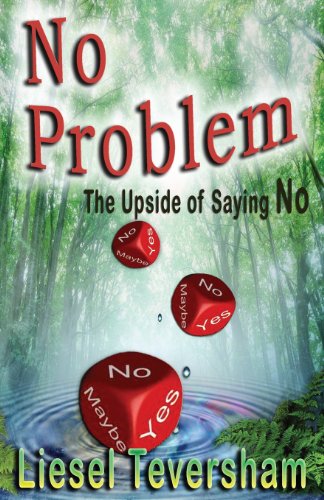
If you have a resistance to saying “No” to requests for your time and your diary is crammed full with no time for yourself or your family, then this book is for you. Using powerful Emotional Freedom Techniques and other modalities, the author makes it easy to say no without being rude or creating animosity. Saying “Yes” to others means saying “No” to yourself.
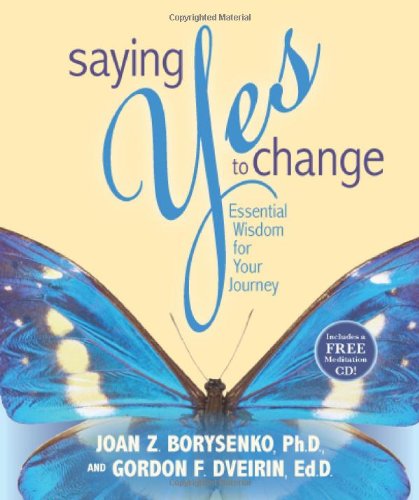
Change is both scary business and an inescapable fact of life. Everything is impermanent and eventually passes away. Some changes are natural, like aging through the lifecycle. Others are sudden and catastrophic, such as illness, bankruptcy, or the death of a loved one. Change is an opportunity to shed the limitations of the lower self and be reborn to the higher self. This book is an inspiring and practical guide to that process, incorporating personal stories, cutting-edge psychological research, and the perennial philosophy of the world’s great wisdom traditions. This book includes a CD which is a body-based mindfulness meditation that guides you in developing moment-by-moment awareness and honoring emotions and other experiences without attachment as they arise and pass away. The CD is suitable for daily use both by beginners and experienced meditators.
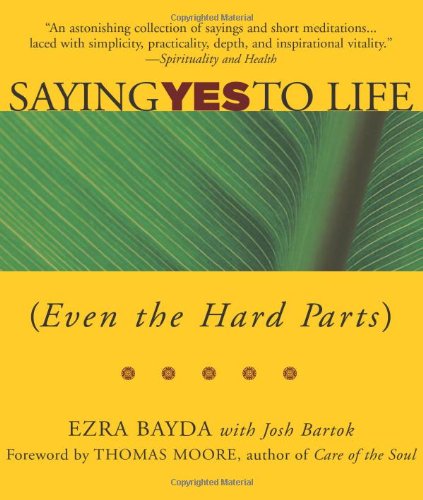
Told in blissfully simple language, the thoughts and messages in Saying Yes to Life (Even the Hard Parts) provide inspiration for each day. These nuggets of wisdom range from a page-long reflection to a simple aphorism and stress the importance of drawing meaning from life’s paradoxes — opening to the unwanted, recognizing the happiness in difficulty, and living for now rather than later. Page after page reveals truths that can be put into action in the moment, yet also stand up to multiple interpretations and thorough examination. Insightful and never convoluted, Saying Yes to Life (Even the Hard Parts) is a great companion for life’s long journey.
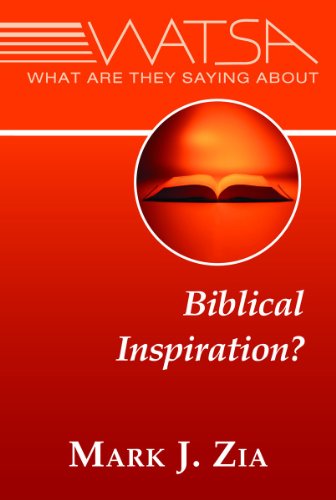
What does St. Paul mean when he writes in 2 Timothy 3:16 that “all scripture is inspired by God”? Is there a difference between biblical inspiration and spiritual illumination? Does biblical inspiration primarily pertain to the text itself, the reader, or the original author? What is the relationship between biblical inspiration and biblical inerrancy?
This book examines diverse theories of biblical inspiration as articulated by scholars Abraham Heschel (Jewish), James Burtchaell (Catholic), Bruce Vawter (Catholic), William Abraham (Methodist), Kern Trembath (Episcopalian), and Paul Achtemeier (Presbyterian) in light of the understanding of biblical inspiration as understood by the Catholic Church, most notable in Dei verbum of the Second Vatican Council.